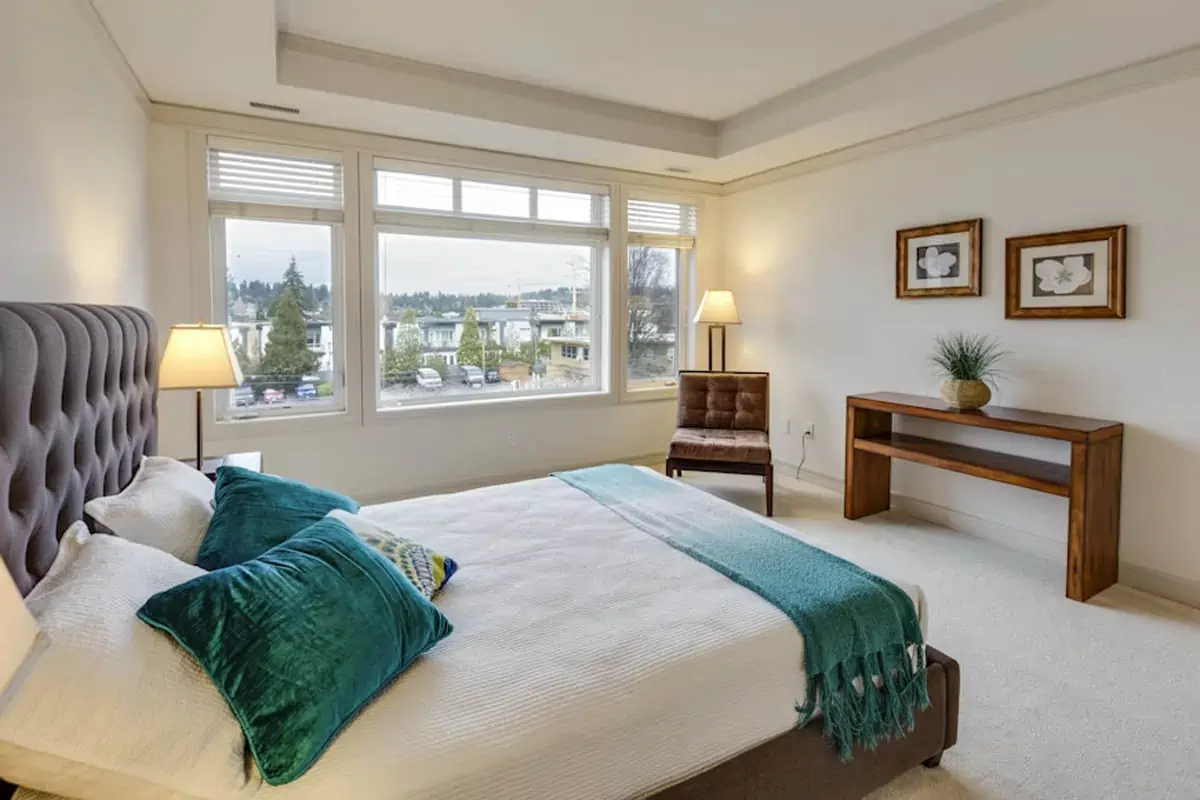The demand for condominiums in the Philippines continues to rise as more people and families seek the ideal combination of modern convenience and living in a prime location.
Whether you're a young professional looking for a vibrant urban lifestyle, a small family planning for the future, or an investor looking for long-term value, one common issue is: How do you strike the ideal balance between condo size and price?
Understanding this trade-off is critical to making informed choices. It's more than just affordability; it's about matching your financial plans to your lifestyle, ensuring you get the most out of your investment. This article will walk you through the elements that influence condo pricing and size, allowing you to focus on the most important issues.
For those looking for options, DMCI Homes has a large selection of properties for sale, rent, and even preselling or rent-to-own (RTO) schemes. With units accessible in prime locations around the Philippines, DMCI Homes assures future condo owners and renters can find a space that meets their needs, lifestyle, and budget—without sacrificing quality or value.
Buying a condo from DMCI Homes is more than simply getting a place to live; it's also about enjoying the benefits of intelligent design, functional facilities, and a community-focused environment. Let's look at the major criteria to assist you in making an informed and confident selection.
Location matters: How market and location shape condo prices
 Photo courtesy of Hendrik Morkel via Unsplash
Photo courtesy of Hendrik Morkel via Unsplash
When looking for a condo, the location is frequently the first consideration. The location of your future home will have a significant impact on its price, size, and long-term worth. Whether you're looking for a property amid a bustling metropolis or a quieter suburban region, understanding these criteria will help you make a better purchase.
1. City or suburban setting
Urban condos in prime locations frequently cost more due to their closeness to core business districts and big enterprises. While these apartments may prioritize location over size, they provide unparalleled convenience for individuals who live fast-paced lifestyles. Suburban condominiums, on the other hand, sometimes offer bigger spaces for the same price, making them an appealing option for families or people looking for extra space without breaking the budget.
2. Proximity to amenities
The closer your condo is to essential amenities such as schools, public transportation, shopping malls, and entertainment areas, the higher the price. A condo near these attractions saves you time and money on commuting while increasing the resale or rental value—a win-win for both personal and investment considerations.
3. Market trends
Condo prices in the Philippines are determined by market factors. High demand, economic growth, and limited supply frequently result in rising prices, especially in high-demand locations. When supply exceeds demand or the economy slows, prices may stabilize or even fall. Staying knowledgeable about market cycles allows you to capitalize on the finest possibilities.
Choosing the ideal location entails balancing the benefits of accessibility, spaciousness, and price. Whether you like urban vitality or suburban peace, the market and location will always be important considerations when purchasing a condo. Next, we'll look at how your tastes and lifestyle requirements influence this decision further.
How personal preferences and lifestyle shape condo decisions
 Photo courtesy of Ella Jardim via Unsplash
Photo courtesy of Ella Jardim via Unsplash
When choosing a condo, your own lifestyle and personal needs are just as significant as the property's price or size. Beyond location and market factors, how you want to use the space and your daily goals will strongly influence your decision.
1. Family size
The number of individuals living in the unit is an important aspect. An expanding family or household with numerous members usually requires additional space, favoring layouts with more bedrooms or larger living areas. Smaller units may be sufficient for lone professionals or couples, particularly if budget and convenience are important.
2. Lifestyle priorities
Your lifestyle influences the size of your unit. Do you like a spacious interior for entertaining guests, pursuing hobbies, or simply having a more open living space? Or does being in a desirable location with compact but well-designed living spaces better suit your fast-paced urban lifestyle? The decision is based on what provides the most value to your everyday routine.
3. Work-from-home needs
As remote work becomes the norm, many condo buyers are looking for apartments with extra rooms or flexible areas that may be converted into home offices. A practical workspace in your home promotes productivity while maintaining a clear separation between work and personal life.
Your tastes and lifestyle goals will determine the size-price ratio. Whether you need a family-friendly layout, a small downtown unit, or more space for a home office, there's a condo for you. In the following section, we will look at how features and amenities bring value to your condo experience.
Maximizing value: Condo features and amenities that enhance your experience
 Photo courtesy of Francesca Tosolini via Unsplash
Photo courtesy of Francesca Tosolini via Unsplash
Acquiring a condo is not only about the size or price; it's also about the quality of the features and services included. Modern condos are designed to improve your living by combining in-unit enhancements with common amenities that provide outstanding value.
1. In-unit condo features
A condominium unit's design and functionality can have a substantial impact on its perceived worth. Modern kitchens with modern appliances, well-designed balconies that add living space, and plenty of storage solutions all contribute to your home's comfort and functionality. These subtle additions can make even small spaces feel expansive and sumptuous.
2. Building amenities
Swimming pools, exercise centers, parking spaces, and 24-hour security not only improve your lifestyle but also increase the value of your investment. These amenities foster a feeling of community while providing convenience and safety, which appeals to both current and prospective renters.
3. Energy efficiency and smart features
Eco-friendly designs and smart technologies are becoming hallmarks of contemporary condo living. Features like energy-efficient appliances, solar power systems, and integrated smart home solutions might justify a higher price for smaller units by lowering utility expenses and increasing usefulness. These products demonstrate a forward-thinking approach to sustainable and comfortable living.
With its ability to maximize natural light and ventilation, DMCI Homes' Lumiventt® Technology is an example of creative, environmentally responsible living. This innovative design creates a more sustainable and healthy living space while lowering energy use and improving indoor air quality.
Choosing a condo with well-rounded features and amenities entails investing in a space that will improve your everyday life while preserving its worth over time. Next, we'll look at the financial factors that can help you make a sound decision.
Weighing the costs: Financial considerations when choosing a condo
 Photo courtesy of Jakub Żerdzicki via Unsplash
Photo courtesy of Jakub Żerdzicki via Unsplash
Financial planning is an important aspect of every condo purchase. Aside from the retail price, there are recurring expenses and potential long-term returns to consider. By carefully examining your budget and understanding the financial ramifications, you can make an informed decision that corresponds with your objectives.
1. Budget and financing options
The first stage is to balance your initial and continuing financial commitments. Down payments, mortgage charges, and monthly expenses such as utility bills should be carefully considered to prevent exceeding your budget. Exploring financing options like flexible payment terms or rent-to-own (RTO) schemes, such as those offered by DMCI Homes, can help you get your dream condo without jeopardizing your financial stability.
2. Maintenance and HOA Fees
Larger units may appear enticing because of their price-per-square-foot value, but greater maintenance and Homeowners' Association (HOA) expenses can accumulate over time. These expenses can balance the savings, making smaller apartments with cheaper monthly rates a more appealing alternative for frugal consumers.
3. Resale and investment value
Another important consideration is the potential worth of your property for sale or rental. Larger condos frequently attract families or upmarket renters, which can result in larger profits. Smaller, well-located units, on the other hand, may have more consistent demand due to their affordability and flexibility, making them equally appealing investment opportunities. Understanding market trends and target demographics might help you make an informed selection.
Striking the correct financial balance guarantees that your condominium continues to provide value and security throughout time. In the next section, we'll look at how external influences and laws may influence your condo purchase decision.
 Photo courtesy of DarkLight2021 via Unsplash
Photo courtesy of DarkLight2021 via Unsplash
Navigating the rules: External factors that influence condo size and price
External variables, such as legal regulations and developer strategy, significantly influence the condo options available to buyers. Understanding these restrictions will allow you to better evaluate your options and set realistic expectations.
1. Zoning laws
Zoning restrictions govern how land in specific locations can be used, which frequently influences the size and density of condominium complexes. In cities, these restrictions may favor smaller units to maximize land usage, whereas in suburbs, more expansive designs may be permitted. These restrictions may have an impact on the availability and price of condos in your selected location.
2. Building codes and standards
Legal regulations for safety, structural integrity, and accessibility also influence condo design and sizes. Developers, for example, must adhere to minimum floor area regulations and set out space for fire exits and elevators. These standards, while often limiting customizing options, maintain quality and safety in all units.
3. Developer strategies
To meet market expectations and remain profitable, developers must frequently strike a compromise between unit size and affordability. This can result in a combination of compact units for budget-conscious buyers and larger, premium ones for families or those seeking luxury. DMCI Homes, for example, combines smart ideas with affordability, providing well-designed interiors that maximize value while maintaining comfort.
Understanding how external restrictions influence condo sizes and costs allows you to make better-educated decisions that meet your needs. Next, we'll look at how to efficiently balance size and price, so you can choose the ideal condo for your lifestyle and budget.
 Photo courtesy of Grovemade via Unsplash
Photo courtesy of Grovemade via Unsplash
Finding the perfect fit: Balancing condo size and price
A wise condo purchase is all about striking the correct balance between size and pricing. You may guarantee that your decision is in line with your lifestyle and financial objectives by carefully examining your needs, researching your options, and seeking expert counsel.
1. Assessing your priorities
Begin by listing your must-haves and nice-to-haves. Is it more necessary to have vast interiors or expensive amenities? Does your budget allow for flexibility, or do you have to stay within a specific pricing range? Prioritizing your needs helps you limit the possibilities that meet your criteria, ensuring that you don't sacrifice what's most important.
2. Research and comparisons
Exploring multiple possibilities is essential for choosing the best value. Compare condos from different developers, weigh the benefits and drawbacks of different communities, and analyze how features and facilities match the pricing. Platforms such as the DMCI Leasing website make it easier to discover properties based on your interests and budget.
3. Consulting experts
Sometimes professional advice can make all the difference. Real estate brokers, financial experts, and property consultants can offer advice on market trends, financing possibilities, and the long-term value of your investment. Their knowledge guarantees that you make an informed and confident decision.
Balancing size and pricing is a significantly personal process that is determined by your priorities, research, and the counsel you seek. With the appropriate strategy, you'll be well on your way to locating a condo that ideally fits your needs, lifestyle, and budget.
Key takeaways
Choosing the ideal condo entails more than just comparing size and pricing; it's about finding a home that fits your lifestyle, matches your needs, and provides long-term value. Understanding the factors influencing your decision can give you the confidence to make a sound investment.
- Evaluate your needs. Identify your must-haves vs nice-to-haves, taking into account family size, lifestyle priorities, and work-from-home requirements.
- Do your research. Compare numerous units, locations, and developers to get the best option for your needs and budget.
- Seek professional advice. Consult real estate agents or financial consultants to get expert advice and make an informed decision.
DMCI Homes offers a wide range of properties that cater to various needs, whether you’re looking for a vibrant city home or a spacious suburban retreat. Follow the DMCI Homes Leasing Blog for more valuable insights and tips, and join the conversation on our Facebook page.
For an even more convenient experience, download the DMCI Homes app on Google Play or the App Store to browse listings, explore amenities, and find your ideal home today.








